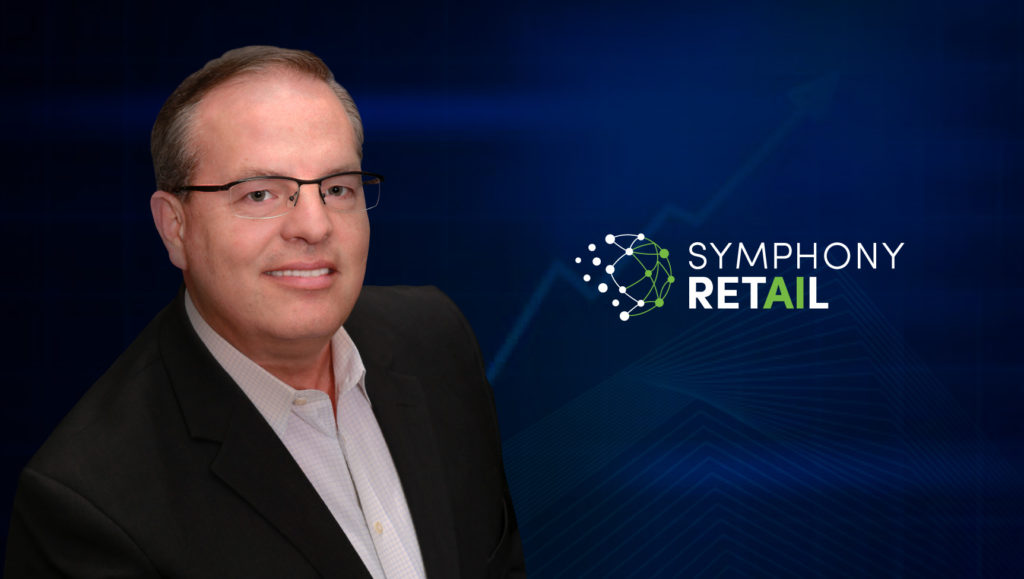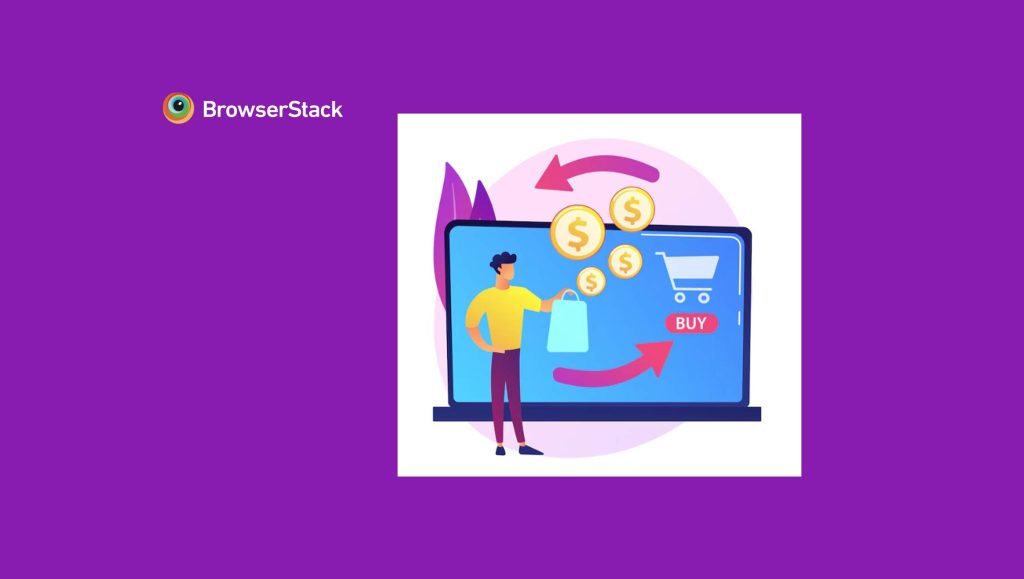Tell us about your journey into Marketing and Sales technology.
My journey into marketing stems from a deep understanding of business challenges and technology, and how the two can be brought together through proper messaging. My background in technology and supply chain has led me to find a career home in bridging the gaps that exist between technology and business requirements.
Early in my career, I was the pricing manager for H-E-B’s perishable departments, and I recognized that while the job required a certain level of sophistication and skill, the technology to support the job didn’t match. While at Walmart, I again found that technology used at the time was not solving the real business challenges in grocery.
Replenishment tools and techniques worked well for steady, non-food items, but the systems in place were not built for fast-moving consumer goods.
I had real challenges that needed to be solved, so I consistently pushed to build and develop capabilities ahead of technology providers’ product releases. And throughout my career, that has been a consistent theme.
My journey led me to the role of an analyst at Gartner, where I served for six years as the vice president of research in retail merchandise and supply chain optimization.
I studied and advised technology companies on messaging, what resonates and what doesn’t, what retailers and manufacturers actually want, and finally, what truly differentiates one technology provider from the next.
Over the course of that time, I met with 500-600 technology companies each year. I began to see significant trends in how companies go to market, their messaging, and best practices in communicating value and differentiators.
What inspired you to start at Symphony RetailAI?
When I left the analyst world, I took on leadership positions with technology vendors. Symphony RetailAI caught my eye because of its sophistication in reaching across the entire retail value chain. I was excited about the infusion of artificial intelligence across the solutions, too. I would have given a lot to have had access to tools such as these as a retail executive! My vision moving forward is to emphasize the power and depth of the Symphony RetailAI software and our differentiators as we continue to lead in this space.
What is Symphony RetailAI, and how does it work for retailers and CPG manufacturers?
Symphony RetailAI provides role-specific, AI-enabled revenue growth management solutions and customer-centric insights for retailers and CPG manufacturers. Our solutions provide recommendations that identify end-to-end opportunities, activate plans, and realize measurable profit and revenue growth.
With our partner ecosystem, we serve more than 1,200 organizations worldwide, including 15 of the top 25 global grocery retailers and all of the top 25 global CPG manufacturers.
How is Symphony RetailAI driving transformation for businesses?
We’re making AI-enabled retail a reality by innovating and using AI and ML to recommend solutions to the issues and opportunities retailers and CPG manufacturers face today. Across marketing, category management, supply chain, and store operations, our software helps businesses to “identify, activate, and realize” – identify and uncover growth opportunities, activate AI-generated recommendations, and realize real revenue growth as a result.
Could you elaborate on how retailers can better leverage AI-enabled decision platforms, solutions, and customer-centric insights?
Retailers today must leverage real-time insights from their data and make smart decisions, at speed and scale; that is impossible to do without the power of AI. The amount of manual effort and spreadsheets still used today is astounding, and legacy systems that operate in silos are not serving today’s retailers in a high-stakes omnichannel world.
By using a holistic and proven AI-powered platform based on a unified view of a company and third-party data, retailers can achieve measurable growth and stay competitive, which is absolutely critical in the industry today. Many companies are dipping their toes into AI-enabled retail with “proof of concepts” and specific “use cases,” but both are code for “AI under development.”
The speed of retail and the risks of falling behind requires a proven provider that is more than a one-trick pony.
Which business groups are using your product? Which geographies have been the fastest to adopt your product offering?
Symphony RetailAI solutions are focused on improving the “day in the life” responsibilities of key roles within a retailer or manufacturer. We work to deliver capabilities that improve, for example, the decision process for a retail or CPG category manager, and then the individual applications for those discrete decisions they need to make: “What’s the right assortment? What is the right allocation of space for each location? What are the right personalized promotions? Where are my opportunities? What do I need to fix today? Why are certain conditions occurring?”
There is broad adoption of our technologies in CPG and retail, specifically around understanding the customer and enabling the decisions of “the Ps” of retail (product, price, placement, promotion). Our solutions also support supply chain efficiencies.
It’s quite interesting to see that the challenges North Americans retailers face today are very similar to those European retailers have already dealt with.
The idea of grocery click and collect and more convenient fulfillment options, for example, first occurred in Europe many years ago, and these ideas are just emerging in America. In that regard, we are very fortunate as a company to have prominent retailers who have successfully adopted our technology in Europe and used it to solve the challenges that North American retailers now experiencing today en masse. We as a company have solved those challenges already; our technology already exists, it’s proven, and it’s not something that still needs to be developed, unlike many other technology providers.
And that’s exciting.
What are the key trends in AI platforms for FMCG retailers, manufacturers, and wholesalers?
Companies are leveraging AI to help better understand each customer, as well as the conditions that retailers operate in and the competitive landscape. Additionally, we’re seeing AI being used to identify strategies that leverage retail and CPG assets and resources more effectively.
AI answers questions such as,
What is a better way to promote?
What are the better ways to offer discounts manufacturers to retailers?
What’s the better way for retailers to promote to customers?
What’s a better way to build loyalty?
What’s emerging now is a new class of technologies that leverage AI to understand not only what is happening but why it’s happening.
Furthermore, AI provides recommendations on what to do to maximize opportunities in the marketplace with customers, avoid disruptions in supply or react to changes in demand.
Substantial changes in demand may mean a retailer runs out of stock or has too much inventory. And in today’s environment, both are very costly. Out-of-stocks present customer satisfaction issues, while overstocks lead to issues with the balance sheet.
Companies are working to leverage AI and machine learning to analyze the impossible, and to arrive at strategies that will maximize opportunities. And those appear to be emerging trends everywhere.
I attribute this to Amazon.
Companies recognize that Amazon is doing things today that they themselves cannot do. For example, Amazon issues up to 3 million price changes every day – no other retailer does anything like that. Amazon leverages AI and has built systems that automate processes. Meanwhile, its buyers and decision makers can focus on strategy and the machine works through the pricing changes. Today’s decision-makers need assistance, and that’s what AI can do.
How do you differentiate between Customer Success and Customer Service?
I believe that customer success exists when the right level of customer service is provided. That service isn’t just handling problems and challenges. The service includes your retail offering, how you communicate with customers, and how you work to proactively remove friction from the customer’s experience. That’s customer service.
And, I believe customer success occurs when you deliver the right type of service. But that service model is changing. What customers expect today is different than what they expected five years ago, or what they will expect five years from now.
How have these changed in the past five years with the arrival of Sales intelligence and e-commerce Automation platforms?
Five years ago, if you received an online purchase from a retailer in a week, you were probably pretty happy. Now? If you don’t receive it in two days, you’re not so happy.
The idea of customer success changes just as customer expectations do. The service that you provided five years ago would not translate to “success” today for the customer. And as service expectations increase, it puts more pressure on retailers and manufacturers.
Previously retailers and manufacturers used point of sale data sprinkled with other consumer behavior data to understand the customer. This level of data was a reasonable surrogate for the customer because the customer was relatively predictable.
But the world is much different today with so many choices and transparency for the consumer; as a result, Sales Intelligence requires far more than transactional data. It requires an understanding of the customer, sales trends, external characteristics of the consumer, how products compete with one another, and how the competition is impacting you as a retailer.
After all, your customer knows what your competition is doing far faster than they did five years ago.
Customer service and the true “success” of tomorrow require new levels of insight and a deep understanding of the customer.
Which start-ups in the technology industry are you currently following?
I’m looking closely at companies that offer augmented reality, virtual reality (AR/VR), and visualizations in order to improve the overall customer experience. I’m in active conversations about possible partnerships, too, as they provide an opportunity for improved levels of experience that the customer will expect in the future.
Which marketing and sales technology platforms/tools do you use in your current role?
At Symphony RetailAI, we use HubSpot and Salesforce, as well as social media platforms, along with a number of other proprietary techniques to communicate our message to the marketplace.
My Sales Magnifier
How do you prepare for an AI-centric world as a technology leader?
I like to think we’re preparing for an AI-centric world by leading in developing true industry-first technology. And that’s our AI-powered personal decision coach, CINDE.
CINDE is a conversational coach for retailers and manufacturers to use to understand what’s happening, what will likely happen in the future, why it’s happening, and what they should do across the business to maximize opportunities (predictive, prescriptive and pre-emptive) in response.
Which events and webinars do you most often attend and why?
There are a number of marketing organizations within LinkedIn that I participate in, as well as events across the industry that are valuable for me to attend, such as NRF, Shoptalk, and Groceryshop. It’s important to me to understand the most current technologies and leverage what I can do to advance Symphony RetailAI’s message in the market.
What is would you advise to other CMOs and sales professionals in the technology industry?
I have found the most difficult thing a technology provider does is to define its true differentiators and the exact ways in which it’s different. Talk to your organization and ask them what’s different about a particular software or approach: if you ask 10 people, you’ll likely get 10 different answers. If you listen carefully to those answers, many of the things said could often be said of any other company.
I believe your true differentiators are those capabilities others cannot or will not do, but also those that present a meaningful and measurable value to your audience.
My advice to CMOs and sales professionals is this: invest your time in really understanding what is different about your company’s technology. Then, build your marketing plans from there. “Our people are different” is not a differentiator. “Our science is better” is not a differentiator. It has to be much more specific than that.
Tag a person in the industry whose answers to these questions you would like to read.
Brian Kilcourse or Paula Rosenblum of RSR Research. As former CIOs, they understand the retailer’s perspective, just as my own experience has allowed me to have insights into both sides of the equation. I’d also recommend other retail analysts, including Mike Griswold or Tom Enright of Gartner, or Greg Girard of IDC.
Thank You, Kevin, for answering all our questions. We hope to see you again, soon.

Symphony RetailAI is global leader in AI-enabled decision platforms, solutions and insights for driving profitable revenue growth for retailers and CPG manufacturers – from customer intelligence to merchandising, personalized marketing to supply chain.
Our organization rapidly innovates to drive faster, more profitable decisions through AI, machine learning and voice technologies. To help high volume retailers and CPG manufacturers move beyond the hype of AI and toward the actual realization of benefits, we’ve launched a three-pronged approach to delivering profitable revenue growth – “Identify, Activate, Realize.”
Kevin has more than 25 years of comprehensive industry experience, bringing a keen understanding of retail, manufacturing and logistics challenges.
Previous roles include GVP of Innovation Strategies and Solution Marketing for JDA, CMO for both Predictix (an Infor Company) and OrderDynamics as well as Gartner Research Vice President overseeing the analysis of hundreds of retail-focused software solutions. Kevin’s industry experience includes serving as chief information officer, supply chain executive, development of innovative technology solutions, inventor, and store operations development for both physical and digital retail.




















